Topic intro description here. Limited to 145 characters. Topic intro description here. Limited to 145 characters. Topic intro description here.
WEBINAR: Pediatric Patient Matching in an Adult World
The growing demand for health information exchange brings the challenges of accurate patient identification to the forefront, especially for children who often don’t have common identifiers or have non-static demographic information. Patient matching is complicated for adults, so how do we address the unique challenges of patient identity matching in pediatrics?
eHI joins experts from the American Academy of Pediatrics, AHIMA, clinicians and technology leaders to discuss these challenges, including confidentiality concerns around matching children according to parental data and ensuring health data is accurate as children transition from pediatrics.
Speakers:

Susan J. Kressly, MD, FAAP
Fellow
American Academy of Pediatrics

Emily Webber, MD, FAAP, FAMIA
Chief Medical Information Officer
Indiana University Health Riley Children’s Health

Mary Greiner, MD, MS
Medical Director
CHECK Foster Care Center
Associate Professor, UC Department of Pediatrics
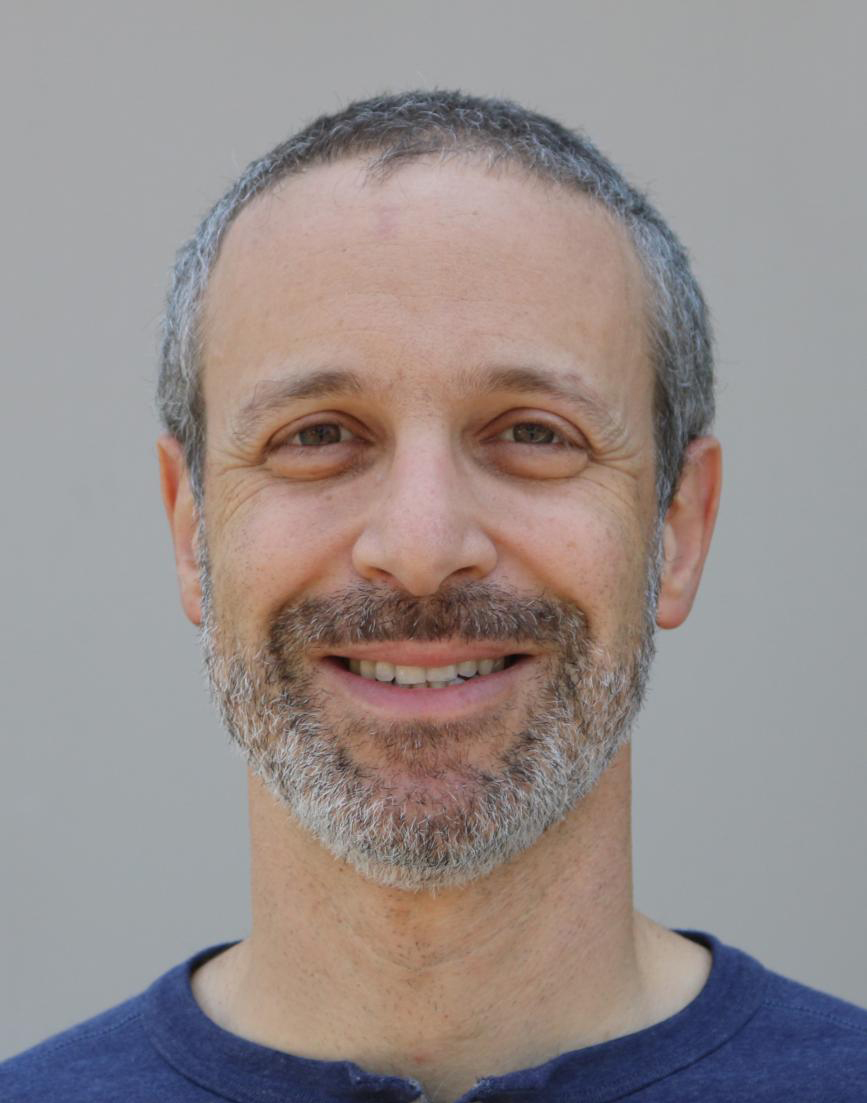
Dan Cidon
Chief Technology Officer
Nextgate
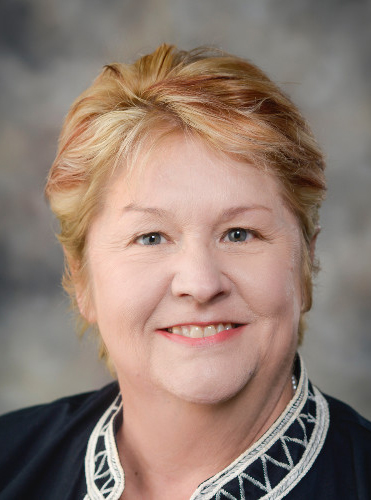
Katherine Lusk, MHSM, RHIA, FAHIMA
Senior Director for Strategic Partnerships
Texas Health Services
Chair, AHIMA
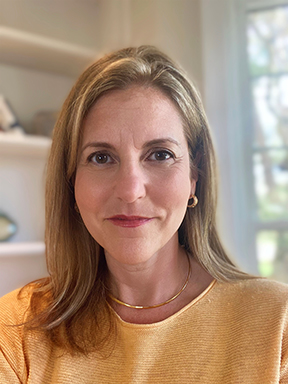
Jen Covich Bordenick
Chief Executive Officer
eHI
WEBINAR: Innovative Solutions to Patient Matching and Identity Access Management
Managing patient information across care settings and platforms for core business functions, interoperability, and patient safety requires coordination and collaboration. In this webinar, eHI convened a panel of experts to discuss strategies for transforming the way healthcare providers validate patient identity across all spectrums.
Speakers:

Desla Mancilla
Business Lead Health IT
BlueCross BlueShield Association
Desla Mancilla, DHA, RHIA, is the Health Information Technology Business Lead for Program Implementation at the Blue Cross Blue Shield Association (BCBSA). In this role, Dr. Mancilla leads health information interoperability education within the Association and supports similar education efforts across the BCBS System. Prior to joining BCBSA in 2019, Dr. Mancilla served as the Vice President of Academic Affairs at the American Health Information Management (AHIMA) from 2012-2019. Dr. Mancilla has conducted primary research on medical identity theft and also leads business strategy development on patient matching in BCBSA.

Dr. Eric Rogers, Chief Medical Informatics Officer
Marshfield Clinic
Dr. Eric Rogers, an emergency medicine physician at our Marshfield Medical Center Eau Claire hospital, has been named Chief Medical Informatics Officer (CMIO) for Marshfield Clinic Health System. Dr. Rogers was the first doctor to join the Eau Claire hospital emergency department (ED) when it opened in July 2018 and has since been serving as department chair. He graduated from the State University of New York – Upstate Medical University, Syracuse, New York, in 2011, and completed his residency in emergency medicine at Albany Medical College – Medical Center in Albany, N.Y., in 2014.

Steven Waite
Executive Director, Office of Information Security
University of Mississippi Medical Center
Steven Waite is the Executive Director for the Office of Information Security at the University of Mississippi Medical Center, the only Level 1 Trauma Center and Level 4 NICU in the state. He has served as UMMC’s Information Security Officer since July 2018. Waite and his OIS team collaborated with Mississippi MED-COM in the establishment of the secure Mobile Tele-Assist System to support EMTs throughout the state. Waite graduated magna cum laude from Mississippi College with a degree in sociology and earned a master’s degree in healthcare law from the University of Oklahoma College of Law. Prior to joining UMMC in January 2010, Waite spent 20.5 years with Gannett Co., Inc., the final 11 years as an IT executive—three times earning a President’s Ring for Excellence.

Courtney Timmons
Director of Market Strategy
LexisNexis® Risk Solutions
Timmons serves LexisNexis® Health Care as director of market strategy for identity. Her role is focused on the strategic planning development and execution of balancing patient and member engagement and data security in support of interoperability. She holds a bachelor’s degree in business marketing from Western Carolina University and an MBA in Business Management from Emory University, Goizueta Business School.

Jen Covich Bordenick
Chief Executive Officer
eHI
For over 20 years, Jennifer has focused on quality and innovative technology solutions to transform healthcare. As CEO, she provides leadership for research, education and advocacy components of eHealth Initiative and Foundation (eHI). Convening senior executives from every group in healthcare to discuss, identify, and share best practices that transform the delivery of healthcare. Focus areas: improving health and wellness through innovative solutions; interoperability; privacy concerns; artificial intelligence; payment models to support innovative care; and tech tools for chronic care. She led development of dozens of national surveys and published groundbreaking reports. As part of her work with the Foundation, she led grants with California Health Care Foundation, Commonwealth Fund, Aetna Foundation and Bristol Meyers Squibb Foundation. Jennifer is co-chair of the Federal HIT Policy Committee’s Strategy and Innovation Workgroup; member of the HL7 Board of Directors; and a member of the Diabetes Collaborative Stakeholder Panel. Jennifer is a faculty member for the MHA and MHIA graduate programs at George Washington University. Prior to joining eHI, Jennifer headed up the strategic marketing at OpenNetworks, Inc., focusing on security solutions for the healthcare industry. She led healthcare industry relations at MicroStrategy, Inc., focusing on data-mining solutions for the pharmaceutical and healthcare industry. She spent four years at the National Committee for Quality Assurance as Director of Policy and Product Development, helping develop national quality standards for healthcare organizations. Jennifer began her career at the George Washington University Hospital, Medical Center and Health Plan working on quality management initiatives, clinical pathways and healthcare administration. Jennifer earned a master's in Human Resource Development, completed coursework in health administration doctoral program at GWU, and resides in Maryland with her husband and two children.
This webinar is supported by
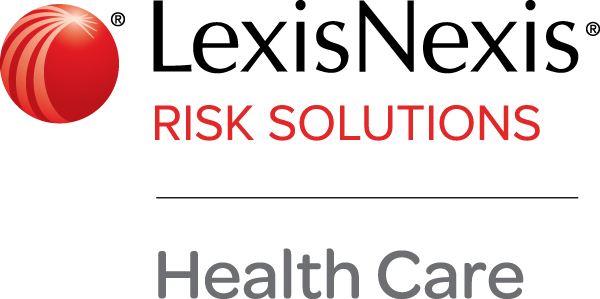
WEBINAR: Digital Health Credentials
Although “vaccine passport” is the buzziest of buzz-phrases these days, digital health credentials have actually been around for years. The benefits they offer to providers and consumers alike are many, but as with most advances in health tech, they are not without their challenges. In this webinar, eHI teamed up with expert panelists to discuss these challenges, including identity verification and workflow issues, and how they relate to the new CMS/ONC interoperability and information blocking rules.
Speakers:

Jeri Koester
Chief Information Officer
Marshfield Clinic Health System
Jeri Koester assumed the role of Interim CIO and then CIO of Marshfield Clinic Health System in early 2019. She previously was vice president of IT business management at Marshfield Clinic Information Services (MCIS Inc.) since October 2016. Prior to that role, Koester was the vice president of operations, the IT division and was instrumental in leading Marshfield Clinic’s transition of their IT department into a for-profit subsidiary of the health system. Her experience also includes senior project management for one of the nation’s largest window and door manufacturers completing a restructure of the manufacturing footprint. She also brings business startup experience from one of the leading software companies in the fenestration industry where she managed sales and sales projections, client accounts, project implementations, and development teams. Koester earned her Bachelor of Business Administration degree from the University of Wisconsin – Eau Claire and is a certified project manager professional from the Project Management Institute.

Mark Treshock
Blockchain Solutions Leader for Healthcare and Life Sciences
IBM
Mark Treshock, IBM’s Global Leader for Blockchain Solutions in Healthcare and Life Sciences has spent his career helping organizations, their constituents and consumers benefit from digital transformation. His current focus is on strengthening the national response to COVID-19 through improved supply chain visibility and the creation of networks of trust including New York State’s Excelsior Pass. Mr. Treshock is a frequent speaker at conferences including the World Economic Forum’s annual conference at Davos. He has also presented on Capitol Hill and the White House.

Dr. Matthew Harris
Northwell Health
Dr. Harris is triple boarded in General Pediatrics, Pediatric Emergency Medicine, and Emergency Medical Services, having completed residency and two fellowships. Dr. Harris works clinically in the pediatric emergency department, caring for acutely ill and injured children. He is the emergency medicine Medical Director of the Northwell Neonatal and Pediatric Critical Care Transport team and chairs the Mass Casualty Incident Preparedness Committee at the system Children’s Hospital. Dr. Harris serves as the associate medical director for the Northwell Center for Emergency Medical Services and the Medical Director of Emergency Management and Clinical Preparedness. Currently, Dr. Harris it the physician lead for the COVID 19 Vaccination Program for Northwell Health.

Todd Gherke
Chief Architect
ID2020
Todd Gehrke serves as Chief Architect at ID2020, where he provides technical guidance for the development of privacy-protecting, user-controlled, and portable digital identity solutions.
Todd is a software engineer and systems architect with over 25 years of experience developing large-scale, fault-tolerant distributed systems. His work spans multiple industries, including telecommunications, healthcare, and manufacturing. Prior to joining ID2020, he developed solutions using distributed ledger technologies and remains an outspoken advocate for the adoption of decentralized identity and privacy-preserving cryptography,
Todd has a BS in Computer Science from Montana State University in Bozeman. He is a world traveler who currently lives in Seattle but still considers Montana his home.
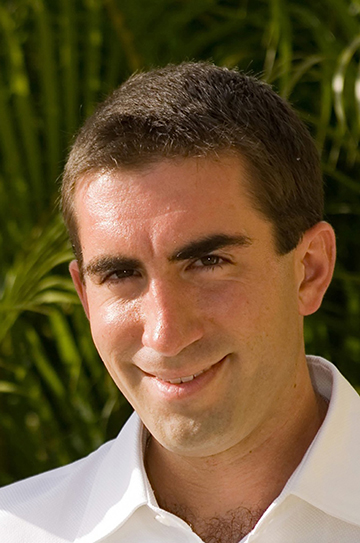
JP Pollak
Chief Architect
The Commons Project
JP is co-founder and Chief Architect of The Commons Project Foundation and the technical co-chair for VCI. He is also a Senior Researcher in Residence at Cornell Tech and an Assistant Professor at Weill Cornell Medicine, where he has focused on helping individuals collect health data from real-world settings and their clinical record for research and care. This work included being a co-creator and governance committee member for ResearchStack, the Android equivalent to Apple’s ResearchKit, and launching Android equivalent to Apple Health. JP has also founded Curiosity Health to better support early stage, digitally-enabled clinical research; founded Wellcoin, an award-winning consumer health incentives application; and built numerous applications in health and life sciences that are widely used in research and business today. JP earned a Master's degree in Human-Computer Interaction and a PhD in Information Science at Cornell University.
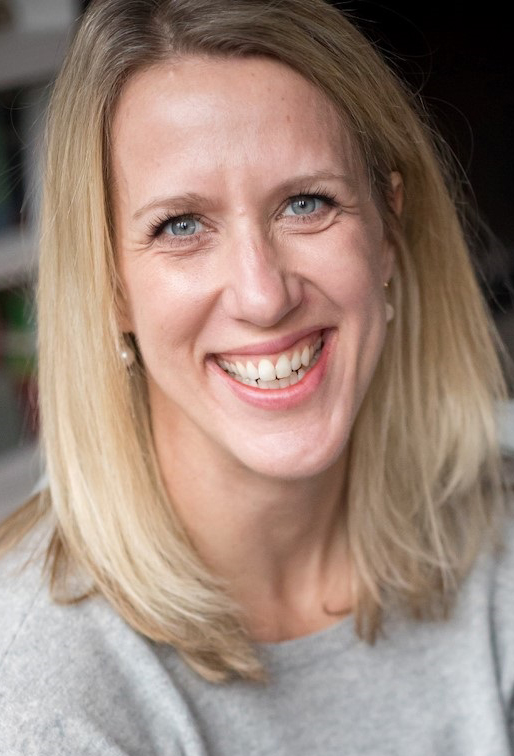
Alice Leiter
Vice President and Senior Counsel
eHealth Initiative
Alice is a health regulatory lawyer with a specialty in health information privacy law and policy. She previously worked as a Senior Associate at the law firm Hogan Lovells, where she worked with clients on Medicare and Medicaid pricing and reimbursement. Alice spent several years as policy counsel at two different non-profit organizations, the National Partnership for Women & Families and the Center for Democracy & Technology. She currently sits on the DC HIE Policy Board, as well as the boards of Beauvoir School, Educare DC, and DC Greens, the latter of which she chairs. She received her B.A. in human biology from Stanford University and her J.D. from the Georgetown University Law Center. Alice and her husband, Michael, live in Washington, D.C. with their four children.
This webinar was supported by

WEBINAR: Paging Dr. Burnout: Why Technology Should Improve, Not Impede, Physician Experience and Patient Care
Although many provider organizations, physicians, and health plans see the value in moving from fee-for-service to value-based care, the problem can’t be solved by technology alone. Often, it is not only a technology problem – it’s a clinical workflow problem. The result of current practices is an alarming rate of physician burnout. Although government regulations and industry experts weigh in on the importance of both value-based care and interoperability separately, the two are interdependent. Electronic health records were made to improve healthcare, not impede it. Healthcare IT execs and physicians should work smarter, not harder, to solve for interoperability, exchange of data, and ease of use of electronic health records all in the name of reaching value-based care adoption and improving patient lives.
Why the Data Matters
A new survey reveals only 37% of payers and 58% of healthcare providers are very confident that their member/patient demographic information is correct. Having the most up-to-do date patient data within the EMR for pre-and post-visit encounters helps ensure accuracy and timely delivery of needed information. Accurate and up-to-date data, embedded in the clinical workflow and EMR at the point of care, improves physician experience and reduces administrative burden to help ensure revenue integrity.
Why Timing Matters
When it comes to capturing revenue and coding claims after a clinical encounter, timing matters. Having clinical decision support that can deliver clinical activity summaries in days not months will accelerate the move from fee-for-service to value-based care.
Why Communication Matters
Many health plans cite payer-provider communication as a primary barrier to accurate claims and in closing care gaps. It is critical to provide patient data directly within the physician’s preferred clinical workflow (inside the EMR) to enhance adoption and clinical action by surfacing key payer insights and data into a closed loop workflow.
Speakers:

Dr. Matt Lambert
Chief Medical Officer
Curation Health
Dr. Matt Lambert brings more than 20 years of experience as a clinician, CMIO, and change leader in value-based care, ensuring that patients receive more comprehensive care and that payers and providers better capture the value of their services. He is a practicing, board-certified emergency medicine provider who previously founded his own physician staffing company.
Dr. Lambert was one of the founding members of Clinovations. During his time there he served as part of the leadership team for several electronic health record implementations at the nation’s largest public health system in New York City, the University of Washington in
Seattle, Johns Hopkins, Barnabas Health, Medstar, and Broward Health. He is also the author off two healthcare books: Unrest Insured and Close to Change: Perspectives on Change and Healthcare for a Doctor, a Town, and a Country.

Steven Waldren
Vice President and Chief Medical Information Officer
American Academy of Family Physicians
Dr. Waldren is a family physician informaticist. He hold a Masters in Health Informatics from the Univ. of Missouri and a Medical Degree from the University of Kansas. He completed his family medicine residency at Wesley Family Medicine in Wichita, KS. In his current role at AAFP, he has increased the adoption of electronic health records in their membership for 10% to 40%+ over a 3 year period; and to over 70% today. He is a subject experts in physician Adoption of technology, health-IT standards, controlled terminology/ontology, health information exchange, health-IT policy, XML messaging and modeling, and clinical decision support.
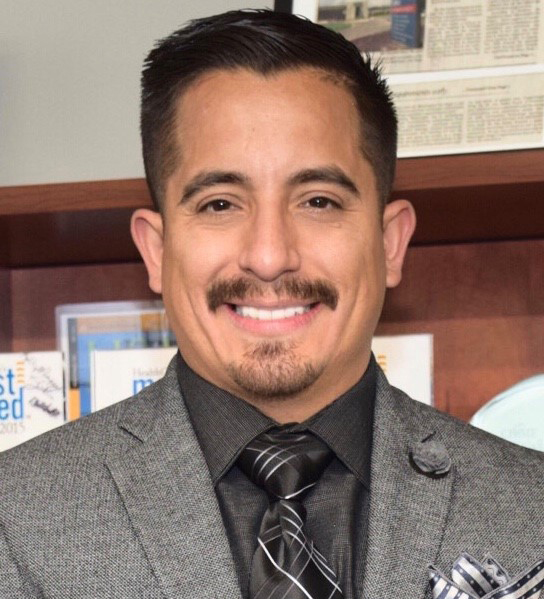
Mike Archuleta
Chief Information Officer
HIPAA & Information Security Officer
Mt. San Rafael Hospital
Recognized as a Top Hospital and Health System CIO to know and named a Rising Star in Healthcare, Michael is a cutting edge, innovative, visionary leader who possesses strong leadership skills with extensive experience and a proven track record of driving increased levels of productivity, profits, high integrity customer relationship skills and expert problem-solving approaches. Michael is an active member of the College of Healthcare Information Management Executives, a technology and cybersecurity advisor to several startups and an active speaker within the field of Health Information Technology.
Under Michael’s guidance and leadership, Mt San Rafael Hospital became one of the leading hospitals in the State of Colorado for leveraging advanced technology to enhance the patient and provider experience. With Michael’s innovative, driven approach, the hospital met HIMSS Analytics Stage Six, a feat only reached by thirty percent of U.S. hospitals. Leveraging advanced Information Technology to improve performance for value-based health care in the areas of infrastructure, business, administrative management, quality, safety, and clinical integration the Information Technology Department has also been presented the 2015, 2016, 2017, 2018, 2019 and 2020 Healthcare’s Most Wired Award which is given annually to the top hospitals in the country making the most progress in the adoption of Health Information Technology.

Jen Covich Bordenick
Chief Executive Officer
eHI
For over 20 years, Jennifer has focused on quality and innovative technology solutions to transform healthcare. As CEO, she provides leadership for research, education and advocacy components of eHealth Initiative and Foundation (eHI). Convening senior executives from every group in healthcare to discuss, identify, and share best practices that transform the delivery of healthcare. Focus areas: improving health and wellness through innovative solutions; interoperability; privacy concerns; artificial intelligence; payment models to support innovative care; and tech tools for chronic care. She led development of dozens of national surveys and published groundbreaking reports. As part of her work with the Foundation, she led grants with California Health Care Foundation, Commonwealth Fund, Aetna Foundation and Bristol Meyers Squibb Foundation. Jennifer is co-chair of the Federal HIT Policy Committee’s Strategy and Innovation Workgroup; member of the HL7 Board of Directors; and a member of the Diabetes Collaborative Stakeholder Panel. Jennifer is a faculty member for the MHA and MHIA graduate programs at George Washington University. Prior to joining eHI, Jennifer headed up the strategic marketing at OpenNetworks, Inc., focusing on security solutions for the healthcare industry. She led healthcare industry relations at MicroStrategy, Inc., focusing on data-mining solutions for the pharmaceutical and healthcare industry. She spent four years at the National Committee for Quality Assurance as Director of Policy and Product Development, helping develop national quality standards for healthcare organizations. Jennifer began her career at the George Washington University Hospital, Medical Center and Health Plan working on quality management initiatives, clinical pathways and healthcare administration. Jennifer earned a master's in Human Resource Development, completed coursework in health administration doctoral program at GWU, and resides in Maryland with her husband and two children.
This webinar is supported by

WEBINAR: Providers Ditch Paperwork & Reduce Burden with AI
While healthcare organizations have been under tremendous financial stress during the COVID-19 pandemic, a recent United healthcare survey shows that 56% of healthcare organizations reported accelerating their artificial intelligence (AI) plans. Since the pandemic struck, investment in AI platforms has skyrocketed. In this webinar, we heard what is driving the current AI investments including cost savings, improved provider and patient experiences, reducing staff burnout and administrative burden.
- Learn how a cutting-edge platform uses AI and RPA to quickly eliminate repetitive operational tasks at scale by using existing administrative processes and applications (i.e. EHR, web-based apps)
- Hear experts discuss how healthcare organizations are investing in AI and automation technologies to cut costs, reduce staff burn-out, create resilience, and enhance the employee and patient experience
eHI Annual Meeting
eHI hosted its Annual Meeting from January 26-28th. Five panels discussed lessons learned, industry best practices, and how we move toward a more modern, technology-enabled, and equitable health care system. Panels of experts explored topics related to social determinants of health, health data privacy, policy and advocacy, and modern health care delivery.
For full biographies of panelists, click here.
Links to all videos below.
eHI CEO Jen Covich Bordenick Interviews Senator Catherine Cortez Masto (D-NV)
eHI was thrilled to host Senator Catherine Cortez Masto (D-NV) for a conversation on healthcare, data privacy, and the importance of federal policy to ensure transparency to the consumer.
Panel #1: TGI2021: Where Are We Heading This Year:
eHI CEO Jen Covich Bordenick was joined by outgoing Board Chair Dr. Susan Turney, President & CEO of Marshfield Clinic Health System, and incoming Board Chair Amy McDonough, Senior Vice President & General Manager of Fitbit Health Solutions. They discussed expectations for 2021, as well as wearable technology and a discussion on equality in healthcare providers.
"While attitudes have thankfully changed dramatically, we have not arrived at a fully equitable society."
- Dr. Susan Turney
Panel #2: Prioritizing Equality in COVID-19 Vaccine Distribution
eHI's Director of Strategy and Programs Wanneh Dixon joined Damika Barr, JD from Verily Life Sciences, Anna Basevich from Arcadia, J. Michael McGinnis, MD, MA, MPP from the National Academy of Medicine, and Diana Zuskov from LexisNexis Risk Solutions for a discussion on how to engage underserved communities in COVID-19 vaccine distribution and using data-driven approaches to close gaps in health equity.
"I think the biggest takeaway is that there is a lot of data out there and I think we're getting to the point where everyone is convinced data is important, but making it actionable and connecting it down to one individual that you can look at an entire data story for."
- Diana Zuskov
Panel #3: Virtual Care Delivery During COVID-19 and Beyond
eHI CEO Jen Covich Bordenick joined experts Saurabha Bhatnagar, MD of United Healthcare, Adam Pellegrini of CVS Health, and Roy Schoenberg, MD of Amwell. Panelists discussed how their organizations have scaled virtual care delivery during COVID-19 and how they envision the future of health care post-COVID-19.
"For the next generation of telehealth that we want to be known for it has to be built differently to allow for innovation of others to collaborate inside the telehealth encounters or surrounding the telehealth encounters."
- Dr. Roy Schoenberg
Panel #4: Protecting “Health-ish” Data: Balancing Innovation and Health Data Privacy
eHI's Vice President and Senior Counsel Alice Leiter joined Jodi Daniel, Partner at Crowell & Moring; Laura Hoffman, Assistant Direction of Federal Affairs at the AMA; and Liz Salmi, Senior Strategist, Research Communication at OpenNotes and Senior Multimedia Communications Director at Beth Israel Deaconess Medical Center. Panelists talked about the challenging balance of shoring up legal protections for the increasing amounts of non-HIPAA-covered health data, establishing consumer trust in new technologies, and encouraging innovation in health care and health tech.
"[With respect to the digital Covid contact tracing apps]... There was a great idea, a great need to try to supplement traditional contact tracing for public health purposes with the outbreak of Covid with digital apps and smartphone apps that could use different types of functionality on your phone ...to alert folks when they were exposed to Covid. Unfortunately, we saw with a lot of the early rollouts of those apps that people didn't trust what would happen to the information they provided."
- Laura Hoffman
Upcoming Webinar: Release of the Final Consumer Privacy Framework for Health Data. We are delighted to release our final proposal to shore up protections for non-HIPAA-covered health information and share our plans for phase 2 of our work. Please join us and our colleagues from the Center for Democracy and Technology on February 9 at 2:00.
Panel #5: Digital Health Policy: Have We Reached a Turning Point?
The last panel of the Annual Meeting was moderated by eHI’s Assistant Vice President of Policy, Catherine Pugh. Catherine was joined by Aashima Gupta, Director, Global Healthcare Strategy and Solutions at Google Cloud; Matthew Roman, Chief Digital Strategy Officer at Duke University Health System; and Dr. Mona Siddiqui, Senior Vice President, Clinical Strategy & Quality at Humana for a discussion on the impact of COVID-19 on health policy, lessons learned, and how we move forward to build a more effective, efficient, and equitable health care system.
“I think digital should have a level playing field and I think there’s often been just a much higher bar to get some things approved than in-person care, so my hope is that people begin to see last year as a proof point of what’s possible and continue to enable greater access to care for people through technology and through digital solutions.”
- Dr. Mona Siddiqui
Webinar: Patient Identity and Data Matching
The COVID-19 pandemic highlighted underlying challenges in data matching and patient identity and, in many cases, slowed public health efforts to respond to and contain the spread of the virus.
eHI invited participation in a survey to assess industry views and opinions on the importance of data matching and patient identity in the response to COVID-19. This webinar analyzes our findings.
Speakers:
Jennifer Covich Bordenick
CEO, eHealth Initiative and Foundation
 For over 20 years, Jennifer has focused on quality and innovative technology solutions to transform healthcare. As CEO, she provides leadership for research, education, and advocacy components of eHealth Initiative and Foundation (eHI). Convening senior executives from every group in healthcare to discuss, identify, and share best practices that transform the delivery of healthcare. Focus areas: improving health and wellness through innovative solutions; interoperability; privacy concerns; artificial intelligence; payment models to support innovative care; and tech tools for chronic care. She led development of dozens of national surveys and published groundbreaking reports. As part of her work with the Foundation, she led grants with California Health Care Foundation, Commonwealth Fund, Aetna Foundation and Bristol Meyers Squibb Foundation. Jennifer is co-chair of the Federal HIT Policy Committee’s Strategy and Innovation Workgroup; member of the HL7 Board of Directors; and a member of the Diabetes Collaborative Stakeholder Panel. Jennifer is a faculty member for the MHA and MHIA graduate programs at George Washington University. Prior to joining eHI, Jennifer headed up the strategic marketing at OpenNetworks, Inc., focusing on security solutions for the healthcare industry. She led healthcare industry relations at MicroStrategy, Inc., focusing on data-mining solutions for the pharmaceutical and healthcare industry. She spent four years at the National Committee for Quality Assurance as Director of Policy and Product Development, helping develop national quality standards for healthcare organizations. Jennifer began her career at the George Washington University Hospital, Medical Center and Health Plan working on quality management initiatives, clinical pathways and healthcare administration. Jennifer earned a master's in Human Resource Development, completed coursework in health administration doctoral program at GWU, and resides in Maryland with her husband and two children.
For over 20 years, Jennifer has focused on quality and innovative technology solutions to transform healthcare. As CEO, she provides leadership for research, education, and advocacy components of eHealth Initiative and Foundation (eHI). Convening senior executives from every group in healthcare to discuss, identify, and share best practices that transform the delivery of healthcare. Focus areas: improving health and wellness through innovative solutions; interoperability; privacy concerns; artificial intelligence; payment models to support innovative care; and tech tools for chronic care. She led development of dozens of national surveys and published groundbreaking reports. As part of her work with the Foundation, she led grants with California Health Care Foundation, Commonwealth Fund, Aetna Foundation and Bristol Meyers Squibb Foundation. Jennifer is co-chair of the Federal HIT Policy Committee’s Strategy and Innovation Workgroup; member of the HL7 Board of Directors; and a member of the Diabetes Collaborative Stakeholder Panel. Jennifer is a faculty member for the MHA and MHIA graduate programs at George Washington University. Prior to joining eHI, Jennifer headed up the strategic marketing at OpenNetworks, Inc., focusing on security solutions for the healthcare industry. She led healthcare industry relations at MicroStrategy, Inc., focusing on data-mining solutions for the pharmaceutical and healthcare industry. She spent four years at the National Committee for Quality Assurance as Director of Policy and Product Development, helping develop national quality standards for healthcare organizations. Jennifer began her career at the George Washington University Hospital, Medical Center and Health Plan working on quality management initiatives, clinical pathways and healthcare administration. Jennifer earned a master's in Human Resource Development, completed coursework in health administration doctoral program at GWU, and resides in Maryland with her husband and two children.

Wanneh Dixon
Director, Strategy and Programs, eHealth Initiative and Foundation
Wanneh directs the social determinants of health (SDOH) and data analytics programs for eHealth Initiative and Foundation (eHI). Wanneh previously worked as the Corporate Engagement Manager for FHI 360, an international development firm focused on global health, education and economic empowerment. At FHI 360 she managed the private sector engagement strategy to cultivate relationships with corporations, foundations, donors and membership organizations. Her global health portfolio focused on maternal mortality, non-communicable diseases, and health systems strengthening. Wanneh holds a BSc in Information Technology from Herzing College and a M.A. in Global Development and Social Justice from St. John’s University. She lives in Maryland and serves on the Human Services Advisory Commission for the City of Rockville.

Mark LaRow
CEO, Verato
Mark is the Verato Chief Executive Officer. He was formerly at MicroStrategy, a BI software provider, for 14 years where he was the Executive Vice President of Products, responsible for product strategy, product marketing, and competitive intelligence. Prior to MicroStrategy, Mark was with Ernst & Young for 17 years and left as Partner responsible for all technical consulting in the east region of the US. Mark holds MS and BS degrees from MIT in electrical engineering and computer science. Outside the office, Mark enjoys woodworking and is an avid soccer fan, supporting FC Barcelona.
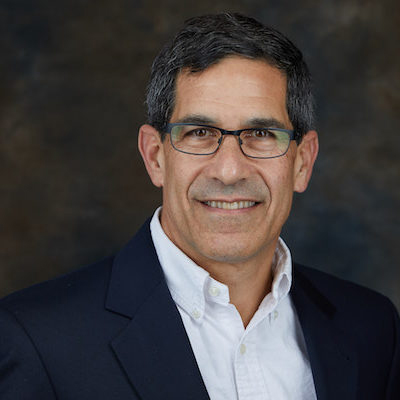
David Kates
Chief Technology Officer, Manifest MedEx
David leads the technology, security, and scalability programs for the Manifest MedEx network. Before MX, David has served in senior leadership roles at Wellpass, Inc (CTO), The Advisory Board Company, NaviNet, WebMD, Hx Technologies, and Cerner Corporation where he has led health information technology strategy, development, product management, and implementation activities.
David is an active contributor to government and industry HIT activities. He serves on the ONC Standards FACA Implementation Workgroup and previously served as co-chair for CCHIT and past board member of HL7 and represented The Advisory Board Company on the FHIR/Argonaut project. David received his bachelor’s and master’s degrees in electrical engineering and computer science from the Massachusetts Institute of Technology and his MBA from Duke University Fuqua School of Business.
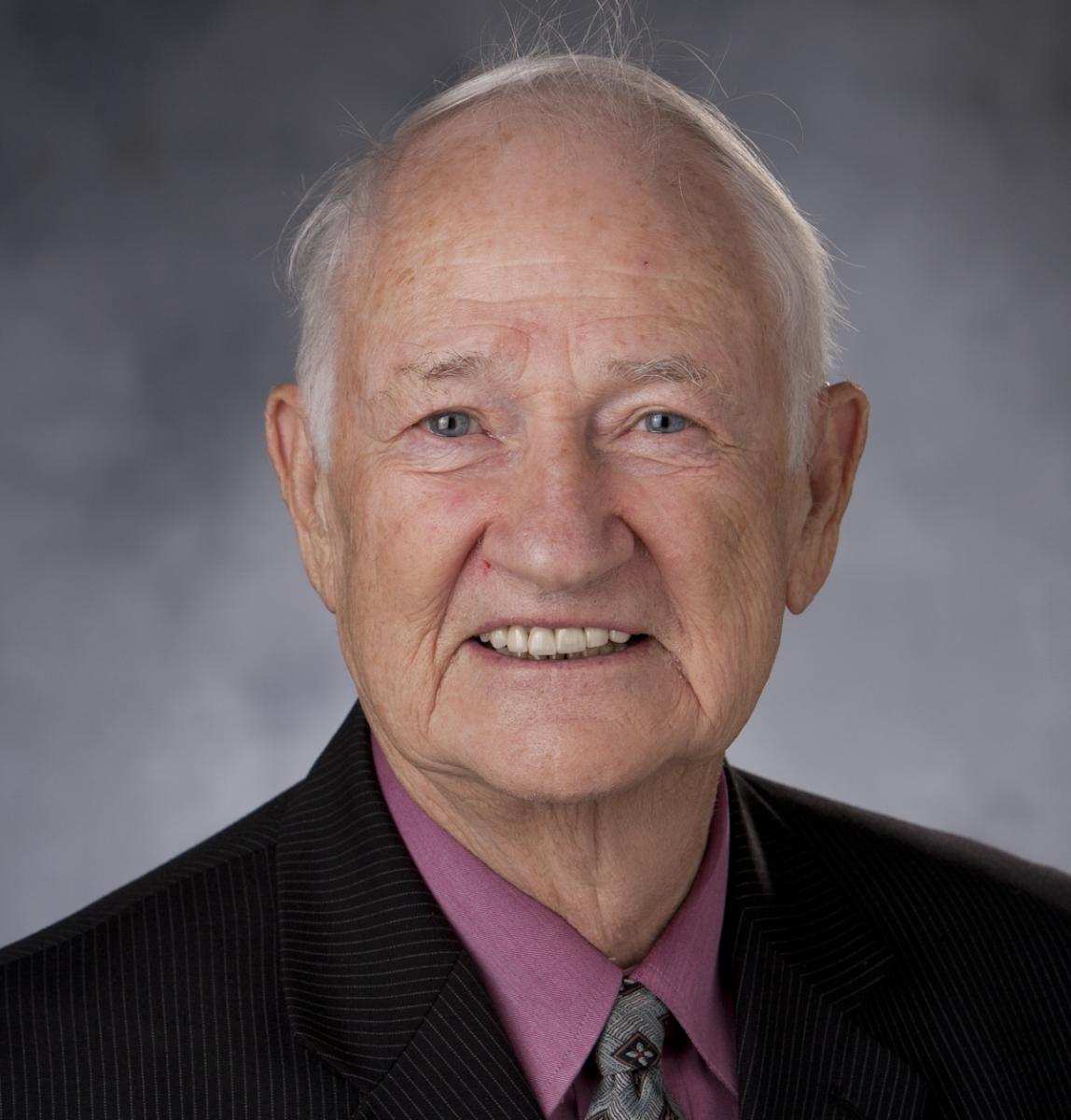
William Hammond
Director, Duke Center for Health Informatics, Duke Translational Medicine Institute at Duke University
W. Ed Hammond, PhD, FACMI, FAIMBE, FIMIA, FHL7 has extensive experience in the design and implementation of electronic health records, starting in 1970. Dr. Hammond's academic and industry leadership include, past president of the American Medical Informatics Association (AMIA) and AMIA Board member, President and Fellow of the American College of Medical Informatics, three terms as Chair of Health Level Seven and HL7 committees, two terms as the Convenor of ISO Technical Committee 215, Working Group 2 and the current Ambassador to Developing Countries and the chair of the Joint Initiative Council of ISO/CEN/HL7. He was Chair of the Data Standards Working Group of the Connecting for Health Public-Private Consortium and serves on the Board of the eHealth Initiative. He also served as Chair of the Computer-based Patient Record Institute and on the CPRI Board. He was a Chair of ACM SIGBIO, is an advisor to the American Hospital Association on health data standards and related matters, and chair of the Steering Committee for the Rockefeller-sponsored Open Enterprise eHealth Architecture Framework Project.
Dr. Hammond served as a member of the Institute of Medicine Committee on Patient Safety Data Standards. He was a member of the National Library of Medicine Long Range Planning Committee and a member of the Healthcare Information Technology Advisory Panel of the Joint Commission on Accreditation of Healthcare Organizations. He has served on a number of NIH review committees, testified on a number of occasions for NCVHS, and has presented to several IOM committees. Dr. Hammond has served and is serving on a number of editorial boards and has published over 300 technical articles.
Case Study: Remote Patient Monitoring
One top-three integrated delivery network (IDN) was facing a challenge: it was unable to manage the growing number of patients with chronic conditions. Past remote patient monitoring (RPM) programs lived outside the EHR in onerous web-based dashboards because integrating data into flowsheets and existing workflows came with exorbitant costs. To meet the various needs of stakeholders, the IDN partnered with Validic to implement a cost-effective approach to RPM.
WEBINAR: Improving Access to Healthcare Data via the FHIR Payer Endpoints Directory
eHI and CAQH webinar - November 10th, 2020 - on CAQH’s FHIR Payer Endpoints Directory, a centralized directory that securely publishes validated FHIR endpoints, simplifying how healthcare organizations and third-party apps find and share endpoint information. The informative presentation will dive into how the FHIR Payer Endpoints Directory intersects with new regulatory requirements in the CMS Interoperability and Patient Access Final Rule.
Speakers:

Jennifer Covich Bordenick
CEO, eHealth Initiative and Foundation
For over 20 years, Jennifer has focused on quality and innovative technology solutions to transform healthcare. As CEO, she provides leadership for research, education and advocacy components of eHealth Initiative and Foundation (eHI). Convening senior executives from every group in healthcare to discuss, identify, and share best practices that transform the delivery of healthcare. Focus areas: improving health and wellness through innovative solutions; interoperability; privacy concerns; artificial intelligence; payment models to support innovative care; and tech tools for chronic care. She led development of dozens of national surveys and published groundbreaking reports. As part of her work with the Foundation, she led grants with California Health Care Foundation, Commonwealth Fund, Aetna Foundation and Bristol Meyers Squibb Foundation. Jennifer is co-chair of the Federal HIT Policy Committee’s Strategy and Innovation Workgroup; member of the HL7 Board of Directors; and a member of the Diabetes Collaborative Stakeholder Panel. Jennifer is a faculty member for the MHA and MHIA graduate programs at George Washington University. Prior to joining eHI, Jennifer headed up the strategic marketing at OpenNetworks, Inc., focusing on security solutions for the healthcare industry. She led healthcare industry relations at MicroStrategy, Inc., focusing on data-mining solutions for the pharmaceutical and healthcare industry. She spent four years at the National Committee for Quality Assurance as Director of Policy and Product Development, helping develop national quality standards for healthcare organizations. Jennifer began her career at the George Washington University Hospital, Medical Center and Health Plan working on quality management initiatives, clinical pathways and healthcare administration. Jennifer earned a master's in Human Resource Development, completed coursework in health administration doctoral program at GWU, and resides in Maryland with her husband and two children.

Robin Thomashauer
President, CAQH
Robin Thomashauer is the president of CAQH, a non-profit alliance that is the leader in creating shared initiatives to streamline the business of healthcare. She has overseen the strategy and operations of the organization since its inception, over 20 years ago.
Under her direction, CAQH has collaborated with health plans, hospitals and healthcare providers to develop, implement, and manage initiatives that reduce costs and eliminate unnecessary administrative burden. These efforts include the Committee on Operating Rules for Information Exchange (CAQH CORE®), CAQH ProView®, SanctionsTrack®, COB Smart®, EnrollHub®, DirectAssure®, VeriFide™ and the CAQH Index®.
Robin has more than 30 years of broad experience in strategy, managed care operations and hospital administration. Before joining CAQH she was a director in the health care practice at PricewaterhouseCoopers (PwC), with a primary focus on payer organizations. Prior to her position with PwC, Robin held senior management positions with Kaiser Permanente, as well as in several teaching hospitals.
Robin holds an M.H.S.A. in Health Care Administration from The George Washington University, and a B.A. in Social Sciences from Colgate University. She is a Diplomate in The American College of Healthcare Executives.

April Todd
Senior Vice President, CORE and Explorations
CAQH
April Todd is the Senior Vice President, CORE and Explorations for CAQH. She is responsible for leading the CAQH CORE multi-stakeholder collaboration that is driving the creation and adoption of healthcare operating rules for electronic administrative transactions and establishing a common foundation for the operational components of value-based payment. She also directs the research functions for the organization including the CAQH Index.
Prior to joining CAQH, April led data, analytic, strategic, and product development functions focused on value-based care for Avalere, an Inovalon Company. Before her role at Avalere, April established the MNsure state health insurance exchange and served as Minnesota’s State Health Economist. April also previously held roles as the Vice President of Strategic Analysis and Communications for Government Affairs at UnitedHealth Group and as the Director of Competitive Intelligence for United Healthcare.
April holds an MPH from the University of Minnesota and a BA from Beloit College.
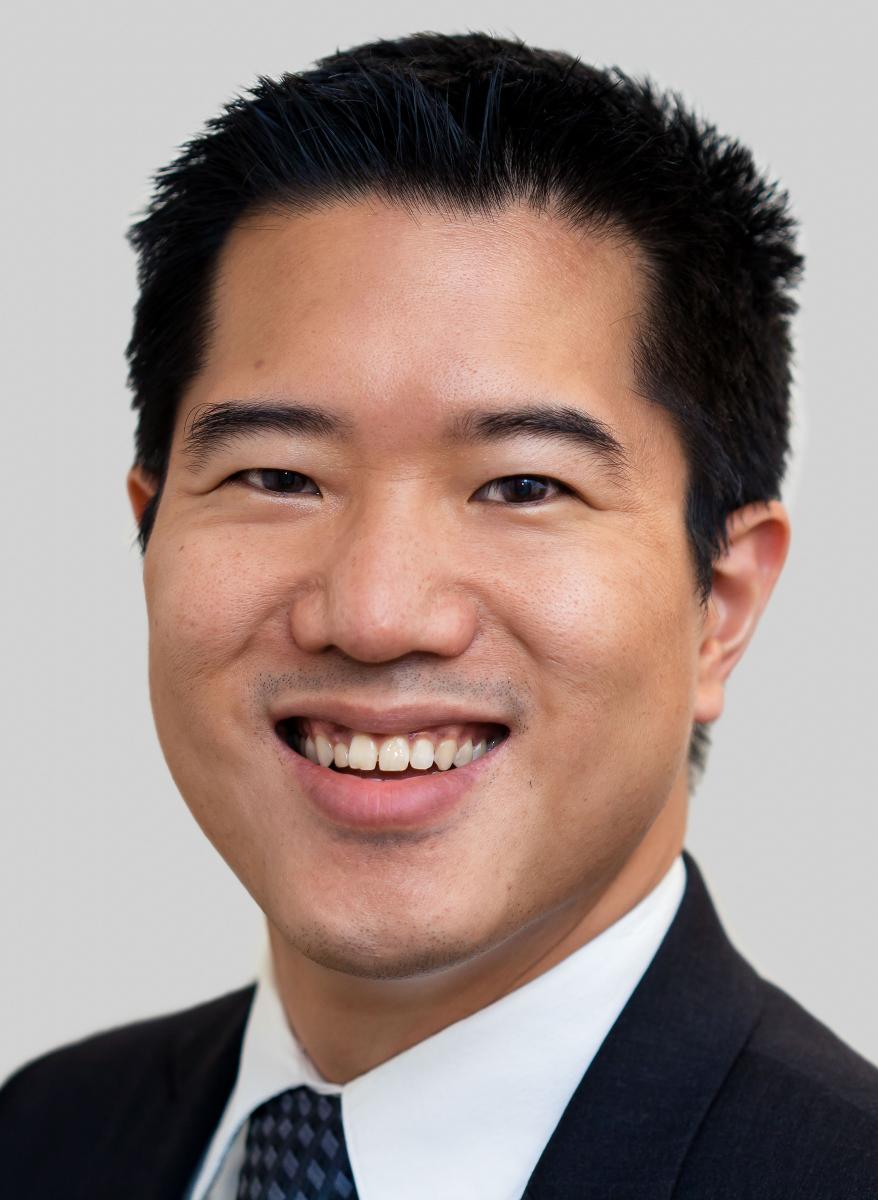
Ron Urwongse
Director, Strategy and Innovation
CAQH
Ron Urwongse is the Director of Strategy and Innovation at CAQH. His role entails launching new products and managing strategic partnerships. Previously, he led product development at Tyrula LLC, focusing on risk adjustment and quality improvement solutions in managed care. At Vecna Technologies, Ron led the development of Massachusetts Commonwealth Connector the first state health insurance exchange, QC PathFinder infection surveillance, and a patient kiosk solution deployed in over 170 VA Medical Centers. Ron writes country western songs and auditioned once for the televised singing show Nashville Star. Ron received his MBA from the MIT Sloan School of Management, Master’s Degree in Information Systems Management from Carnegie Mellon University, and B.S. degree in Information Systems from Carnegie Mellon University.
Amendment to Remove Unique Patient Identifier Ban Passes the House
This week, an amendment offered by Representative Bill Foster (IL) and Representative Mike Kelly (PA) to HR 7617, legislation to fund the Department of Health & Human Services (among other federal agencies), passed the House by voice vote.
This amendment strikes Section 510 of the Labor-HHS Appropriations bill, which currently prohibits the US Department of Health and Human Services from spending any federal dollars to promulgate or adopt a national patient identifier. In order to become law, the Senate now must take up and pass a similar amendment.
The current COVID-19 pandemic highlights the urgent need to lift this archaic ban. Providers need to be able to identify patients in order to prevent misidentification – especially the risks of COVID-19 tests to be either returned to the wrong patient or no patient at all.
